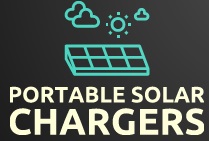Imagine being able to charge your devices anywhere, anytime, without being dependent on electrical outlets. Portable solar chargers offer exactly that convenience. With the ability to harness the power of the sun, these innovative devices allow you to charge your smartphone, tablet, or any other gadget on the go. But, are they truly worth the investment? In this article, we will explore the benefits and drawbacks of portable solar chargers, helping you determine whether they are a smart addition to your tech arsenal.
Advantages of portable solar chargers
Convenience
Portable solar chargers provide you with the convenience of charging your electronic devices on the go. Whether you are out on a camping trip, travelling, or simply spending time outdoors, you no longer have to worry about finding a power source to keep your devices charged. With a portable solar charger, all you need is access to sunlight, and you can harness its energy to power up your devices whenever and wherever you need them.
Environmentally friendly
One of the greatest advantages of portable solar chargers is their positive impact on the environment. By utilizing renewable solar energy to charge your devices, you contribute to reducing greenhouse gas emissions and dependence on fossil fuels. Solar power is clean and sustainable, leaving no carbon footprint. By opting for a portable solar charger, you are making a small but significant step towards a greener and more sustainable future.
Cost-effective in the long run
While the initial cost of a portable solar charger may be higher compared to traditional chargers, they prove to be cost-effective in the long run. Once you have invested in a portable solar charger, the energy you harness from the sun is free. You no longer have to spend money on electricity to charge your devices. Over time, this can result in significant savings, especially if you frequently find yourself in situations where access to power outlets is limited.
Disadvantages of portable solar chargers
Limited charging capacity
One of the disadvantages of portable solar chargers is their limited charging capacity. The size and capacity of the solar panels directly impact the amount of energy that can be harvested from sunlight. This means that portable solar chargers may not be suitable for charging high-demand devices such as laptops or tablets, which require more power. However, they are generally suitable for charging smaller electronic devices like smartphones, cameras, and MP3 players.
Dependent on sunlight availability
The effectiveness of portable solar chargers heavily relies on the availability of sunlight. Cloudy or overcast weather conditions may hinder their charging capabilities. It is important to note that solar panels work best in direct sunlight and may be less efficient in shaded areas or during certain hours of the day. If you frequently find yourself in areas with limited sunlight, or if you require a constant and reliable power source, a portable solar charger may not be the most practical option for you.
Initial cost
Another disadvantage of portable solar chargers is their higher initial cost compared to traditional chargers. The technology and materials used in creating solar panels can make them more expensive. However, it is important to consider the long-term cost savings and environmental benefits that come with using solar chargers. While the upfront cost may be a barrier for some, the overall value and benefits make it a worthy investment.
Factors to consider before purchasing
Power output
Before purchasing a portable solar charger, it is crucial to consider its power output. The power output determines how quickly and efficiently the solar charger can charge your devices. Look for a portable solar charger with a power output that matches your charging needs. It is also important to consider the capacity of the power bank or battery included in the solar charger, as it will determine how much charge you can store and use later.
Portability
The whole point of a portable solar charger is its ability to be easily carried and used on the go. Consider the size, weight, and portability features of the charger. Look for compact designs that are lightweight and easy to carry in your backpack or pocket. Some portable solar chargers come with built-in hooks or straps for easy attachment to backpacks or tents, making them even more convenient for outdoor activities.
Compatibility
Ensure that the portable solar charger you choose is compatible with your devices. Check the specifications and connectors provided by the solar charger to ensure it can charge your specific devices. Some solar chargers come with multiple USB ports or different types of connectors to accommodate a variety of devices. Additionally, some solar chargers may be specifically designed for certain devices, such as smartphones or cameras, so make sure to choose one that suits your needs.
Durability
Since portable solar chargers are intended for outdoor use and might be exposed to various weather conditions, it is important to consider their durability. Look for solar chargers that are built with rugged materials and are waterproof or water-resistant. This ensures that they can withstand the elements and continue to function optimally even in challenging environments.
Additional features
Some portable solar chargers come with additional features that can enhance your charging experience. These may include built-in LED lights, which can be useful during camping trips or emergencies, or integrated power banks for storing energy. Additionally, some solar chargers may have foldable or adjustable panels, allowing for better positioning and increased sunlight absorption. Consider the features that align with your needs and preferences before making a decision.
Applications of portable solar chargers
Camping and outdoor activities
One of the most common applications of portable solar chargers is during camping and outdoor activities. When you are away from traditional power sources, a portable solar charger provides a reliable and sustainable option for keeping your devices charged. Whether it is charging your smartphone to stay connected or powering up your portable speakers for some music by the campfire, a portable solar charger ensures that you never run out of power in the great outdoors.
Traveling
For frequent travelers, a portable solar charger is a valuable tool to have in your arsenal. Imagine exploring unfamiliar cities or remote locations and being able to charge your devices without relying on finding power outlets. With a portable solar charger, you can keep your smartphone, camera, or other electronic devices charged and ready to capture those memorable travel moments. Whether you are backpacking through Europe or going on a safari in Africa, a portable solar charger ensures you stay connected and powered up.
Emergency situations
In unforeseen emergency situations, such as power outages or natural disasters, a portable solar charger can be a lifeline. When traditional power sources are unavailable or unreliable, a portable solar charger allows you to charge your essential devices, such as flashlights, radios, or emergency communication equipment. This ensures that you can stay connected and informed, potentially even saving lives in critical situations.
Charging small electronic devices
Portable solar chargers are ideal for charging small electronic devices such as smartphones, tablets, cameras, and smartwatches. These devices are often an integral part of our daily lives, and running out of battery can cause inconvenience and disruption. With a portable solar charger, you can ensure that you always have a backup power source for these essential devices, mitigating the frustration of a dead battery.
Comparing different portable solar charger models
Solar panel efficiency
When comparing portable solar chargers, one important factor to consider is the solar panel efficiency. The efficiency of the solar panels determines how effectively they can convert sunlight into usable energy. Higher efficiency panels will generate more power in a shorter amount of time, allowing for faster and more efficient charging of your devices. It is advisable to choose a portable solar charger with a higher solar panel efficiency for optimal results.
Battery capacity
The battery capacity of a portable solar charger is an important consideration, especially if you need to charge multiple devices or require extended usage without access to sunlight. A larger battery capacity will allow you to store more energy and charge your devices for a longer period of time. Additionally, some portable solar chargers come with the option of removable or replaceable batteries, providing flexibility and convenience.
Weight and size
When it comes to portable solar chargers, the weight and size are crucial factors to consider, especially if you are planning to carry them during outdoor activities or travels. Look for lightweight and compact designs that are easy to carry and do not add unnecessary bulk to your backpack or luggage. The size should be small enough to fit in your bag, while still providing sufficient solar panel surface area for efficient charging.
Charging time
The charging time of a portable solar charger refers to the amount of time required to fully charge its internal battery or the devices connected to it. Consider the charging time as it relates to your specific needs and circumstances. Some portable solar chargers may have faster charging capabilities, while others may take longer. Additionally, the charging time may vary depending on the amount of available sunlight and the power output of the charger.
Customer reviews
One of the best ways to compare different portable solar charger models is by reading customer reviews. Real-life experiences and feedback from other users can provide valuable insights into the performance, durability, and overall satisfaction with a particular charger. Look for reputable sources and platforms where customers share their honest opinions. Take note of any consistent positive or negative feedback to make an informed decision.
Real-life effectiveness of portable solar chargers
Location and climate impact
The effectiveness of portable solar chargers can vary depending on the location and climate conditions. In areas with abundant sunlight, such as tropical regions, portable solar chargers tend to perform exceptionally well. However, in areas with frequent cloudy or rainy weather, the charging capacity may be reduced. It is important to consider the average climate conditions of the areas where you plan to use the charger to ensure that it meets your charging needs effectively.
Limitations in extreme conditions
While portable solar chargers are designed to withstand normal outdoor conditions, they may have limitations in extreme environments. Extreme temperatures, such as excessive heat or extreme cold, can affect the performance and efficiency of the solar panels and batteries. It is advisable to refer to the manufacturer’s guidelines and specifications to ensure that the portable solar charger is suitable for the specific climate conditions you will be exposed to.
Charging speed in various scenarios
The charging speed of a portable solar charger can vary depending on various factors. The angle and positioning of the solar panels in relation to the sunlight can significantly impact the charging speed. Additionally, the intensity of the sunlight, the time of day, and the overall capacity and efficiency of the solar charger can affect the charging speed. It is important to consider these factors and adjust the positioning of the solar panels accordingly to maximize the charging speed.
How to maximize the use of portable solar chargers
Positioning the solar panels
To maximize the charging efficiency of your portable solar charger, it is important to properly position the solar panels. Place the solar panels in direct sunlight with minimal shading to ensure optimal energy absorption. Adjust the angle of the solar panels to align with the direction of the sunlight. For example, if you are camping, you may need to adjust the panels throughout the day as the position of the sun changes. This will help maximize the amount of energy harvested and ultimately speed up the charging process.
Using a power bank for storage
To ensure a continuous power supply even in the absence of sunlight, consider using a power bank in conjunction with your portable solar charger. This allows you to store the energy harvested from the sun during the day and use it later when needed. Look for a power bank with a capacity that matches your charging needs and is compatible with your devices. When charging your devices from the power bank, remember to recharge the power bank using the solar charger whenever possible.
Conserving energy on devices
To maximize the use of your portable solar charger, it is important to conserve energy on your devices. Adjust the settings on your smartphones or tablets to minimize power consumption. Lower the screen brightness, disable unnecessary notifications, and close apps running in the background. By conserving energy, you can prolong the battery life of your devices and reduce the frequency of recharging, making the most out of the energy provided by your portable solar charger.
Choosing the right time for charging
The timing of charging plays a crucial role in maximizing the efficiency of your portable solar charger. Aim to charge your devices during peak sunlight hours when the solar panels can harvest the most energy. This is typically during the middle of the day when the sun is at its highest point in the sky. By aligning your charging activities with these optimal charging hours, you can ensure faster and more efficient charging.
Key considerations for sustainable energy usage
Reducing energy consumption
In addition to utilizing portable solar chargers, it is essential to adopt habits that reduce energy consumption. By being conscious of the amount of energy used by electronic devices and appliances, you can contribute to sustainable energy usage. Unplug chargers and devices when not in use, turn off lights when leaving a room, and invest in energy-efficient appliances. These small changes collectively have a significant impact on reducing energy consumption and promoting a sustainable lifestyle.
Choosing energy-efficient devices
When purchasing electronic devices, opt for energy-efficient models that are designed to consume less power. Look for devices with high energy efficiency ratings and certifications such as Energy Star. Energy-efficient devices not only help to reduce electricity consumption but also contribute to prolonged battery life, reducing the frequency of recharging and the strain on your portable solar charger.
Investing in renewable energy sources
Complementing the use of portable solar chargers, consider investing in other renewable energy sources for your energy needs. This can include installing solar panels on your home or investing in wind turbines or geothermal systems. By diversifying your energy sources and relying more on renewable energy, you can further reduce your carbon footprint and contribute to a more sustainable and environmentally-friendly lifestyle.
Current advancements in portable solar charger technology
Flexible and lightweight solar panels
Advancements in portable solar charger technology have led to the development of flexible and lightweight solar panels. These panels are more versatile and can be easily folded or rolled up, making them highly portable and convenient for outdoor activities. The flexibility also allows for better positioning and angling of the solar panels, maximizing energy absorption and charging efficiency. Lightweight solar panels further enhance the portability of solar chargers, ensuring you can carry them with ease during your adventures.
Integrated fast-charging technology
In recent years, portable solar chargers have incorporated integrated fast-charging technology. This technology allows for quicker charging of devices, significantly reducing the charging time. With fast-charging capabilities, you can power up your devices in a shorter period, enabling you to stay connected and utilize your devices without long waiting times. This is particularly beneficial during emergencies or situations where time is of the essence.
Wireless charging capabilities
Another notable advancement in portable solar charger technology is the inclusion of wireless charging capabilities. Some portable solar chargers now come with built-in wireless charging pads, allowing you to charge compatible devices without the need for cables or connectors. This provides added convenience and eliminates the hassle of carrying and connecting multiple cords. Wireless charging further simplifies and streamlines the charging process, making it more user-friendly and efficient.
Conclusion
Portable solar chargers offer numerous advantages, including convenience, environmental friendliness, and cost-effectiveness in the long run. They provide a reliable and sustainable way to charge your devices on the go, making them particularly useful for camping, traveling, emergency situations, and charging small electronic devices. However, it is important to consider the limitations of portable solar chargers, such as their limited charging capacity and dependence on sunlight availability.
Before purchasing a portable solar charger, it is essential to consider factors such as power output, portability, compatibility, durability, and additional features. By comparing different models based on solar panel efficiency, battery capacity, weight and size, charging time, and customer reviews, you can make an informed decision. Real-life effectiveness depends on the location and climate impact, limitations in extreme conditions, and the charging speed in various scenarios.
To maximize the use of portable solar chargers, proper positioning of the solar panels, using a power bank for storage, conserving energy on devices, and choosing the right time for charging are key considerations. Additionally, adopting sustainable energy usage practices, such as reducing energy consumption, choosing energy-efficient devices, and investing in renewable energy sources, complements the use of portable solar chargers.
Advancements in portable solar charger technology, such as flexible and lightweight solar panels, integrated fast-charging technology, and wireless charging capabilities, continue to improve the effectiveness and usability of portable solar chargers. With ongoing innovation, portable solar chargers are becoming more efficient, user-friendly, and versatile.
In conclusion, portable solar chargers are worth considering for their convenience, environmental benefits, and long-term cost savings. They offer a reliable and sustainable way to charge your devices while on the move, enabling you to stay connected and powered up wherever your adventures take you.





